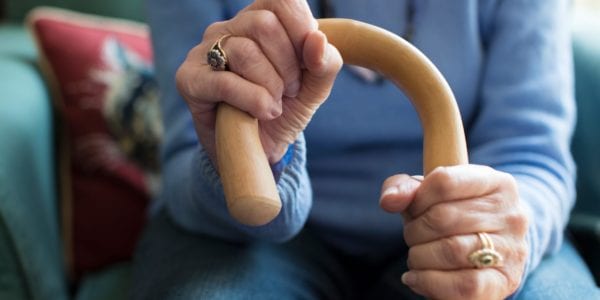Falls are a leading cause of injury among older adults and often result in a loss of personal independence.
Each year, more than 300,000 older people enter the hospital for a hip fracture, with the vast majority caused by a fall. Falls are also the most common cause of head injuries among seniors, according to the Centers for Disease Control and Prevention.
There are steps you can take to avoid falls, setting into motion unwanted consequences.
Check Your Medication
Talk to your doctor about reducing medication that causes dizziness or disorientation. In one study, the CDC found that more than half of all older adults used at least one medication whose side effects were linked to falls.
Check Your Eyesight
Treating poor vision is another important consideration. Make vision exams part of your health maintenance routine.
Don’t walk around – or leave — the house wearing “dollar store peepers,” cheap, nonprescription eyeglasses, says Norine Zimmer, an instructor (and former student) of A Matter of Balance: Managing Concerns About Falls, a 6-week workshop to learn fall prevention techniques and tackle falling fears. Many Area Agencies on Aging offer the class, including the Area Agency on Aging 1-B. These magnifiers literally trip up people who get up from reading to do something else, she says.
Fear is An Enemy
Many falls can be prevented with a few adjustments in the home and in the head.
Paying attention is one of them, says Zimmer.
She speaks from experience. Zimmer thought it was her bad knees and ankle that were making her unsteady on her feet. Taking the Matter of Balance workshop turned on a lightbulb.
“I learned how to pay attention. I learned to carry in one or two grocery bags at a time, that I could not be on the telephone walking downstairs,” she says. “I learned what my weakness was. I didn’t know it was my attention; I thought it was my legs.”
Zimmer teaches that a fear of falling may raise the risk of falling. Quite a paradox.
We make those negative thoughts come true, inadvertently, she says. “In some ways, as you get older, you’re prepared to fall and you don’t adjust your lifestyle. It is absolutely not true that falling is a natural part of aging.”
Using a cane or other assistive device is another adjustment older adults should make if they aren’t completely confident about their steadiness.
“It’s amazing how much support that little stick offers,” says Zimmer, 85. She started leading Matter of Balance classes in the metro Detroit area about five years ago.
Tweak Your Living Space
Making simple modifications to your home can go a long way to help you avoid falling. They include:
- Removing or taping down throw rugs
- Coiling or taping cords and wires to the wall in high-traffic areas
- Using non-slip or self-stick mats on the shower or tub floor
- Using bright lightbulbs
- Placing nightlights along the path you walk at night and in the bathroom; if you don’t have electrical outlets, use battery-operated ones.
- Placing your reading lamp close the bed so you don’t have to reach far
- Installing grab bars for support in or near the tub, shower and toilet
- Securing handrails or bannisters that are loose
Practice Balance
Improving one’s balance goes a long way in preventing falls and it can be done through simple exercises at home
Older adults should do balance exercises three or more times a week. They can be done at home without equipment:
- Stand on one foot for as long as possible or try holding for 10 second on each side. Use a wall or chair for extra support, if necessary, holding on with both hands and then one hand and then one finger and then no hands. Do this exercise while working in the kitchen, waiting in line or brushing your teeth.
- Walk heel to toe for 20 steps. Steady yourself with a wall if you need a little extra support.
- Walk normally in as straight a line as you can.
The American Heart Association also recommends yoga and tai chi, which don’t require expensive classes or equipment. A DVD or online class can get you started.
This blog post is courtesy of the Area Agency on Aging 1-B, a nonprofit responsible for serving more than 700,000 people 60 and older in Livingston, Macomb, Monroe, Oakland, St. Clair and Washtenaw counties. By providing community-based services from meals to in-home care, the Area Agency on Aging 1-B enables older adults and adults with disabilities to maintain their health and independence in their homes. More information is available by calling the AAA 1-B Information and Assistance Telephone line at (800) 852-7795 or visiting www.aaa1b.org.
Related:
- Why Grandchildren Keep You Healthy
- Aging with Attitude: Michigan Seniors Living with Vitality
- Finding Purpose in Life as We Age








